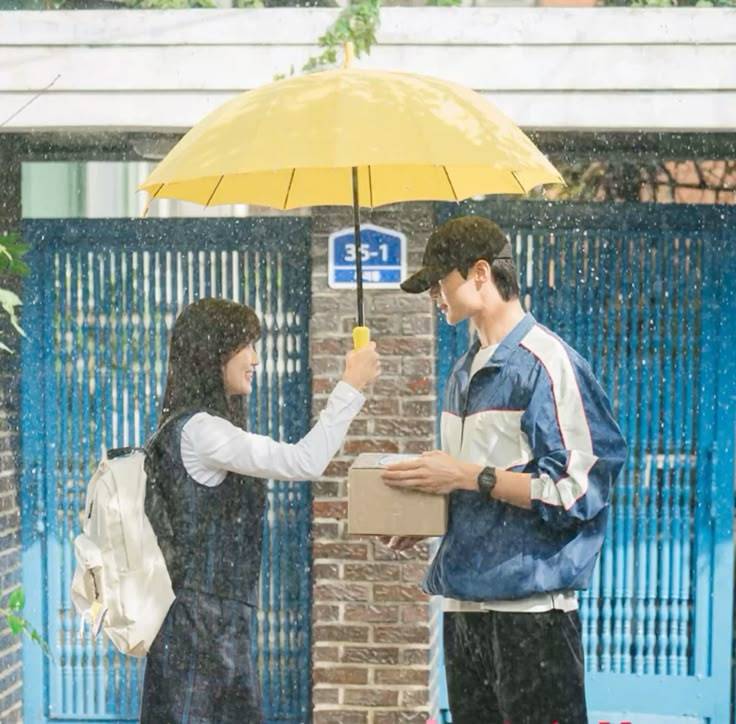The Influence of K-Dramas on Pakistani Viewers: How We Went from “Saas-Bahu” Dramas to Sobbing Over Korean Love Stories

Once upon a time, Pakistani households were ruled by never-ending family feuds, dramatic dupattaflips, and villains whose entire personality revolved around being evil for no reason. Then came K-dramas—and suddenly, the expectations for entertainment (and men) changed forever.
Over the past decade, K-dramas have taken over Pakistani screens, hearts, and even wardrobes. What started as an innocent binge-watch quickly turned into an obsession with slow-motion romantic glances, impossibly attractive leads, and an urgent need to visit South Korea at least once in this lifetime. And judging by the current trajectory, this is just the beginning.

How K-Dramas Snuck into Our Lives
Pakistan’s introduction to K-dramas began in the early 2000s, but the real invasion started in the mid-2010s. Streaming platforms, social media hype, and Urdu-dubbed versions on local TV channels opened the floodgates. Suddenly, everyone had an opinion on Boys Over Flowers, The Heirs, and My Love from the Star.
The biggest appeal? They weren’t Pakistani dramas. Gone were the unnecessarily stretched-out plots where characters cried for five episodes straight. Instead, K-dramas kept things short, sweet, and emotionally devastating in 16 to 20 episodes. No pointless dragging, no five-year amnesia arcs—just tight storytelling and emotional manipulation in its finest form.

Why Pakistanis Are Hooked: The Secret Formula
K-dramas have a way of making you believe in pure, wholesome love, even if you haven’t recovered from the last time you got ghosted. The emphasis on family values, respect, and romance that doesn’t involve screaming matches is a breath of fresh air for Pakistani viewers used to the usual susral politics.
Then there’s the production quality—flawless cinematography, dreamy locations, and wardrobes that make every lead look like they just stepped out of a fashion campaign. Korean actors could be playing “struggling” characters, but they still dress like luxury brand ambassadors and have the perfect glass skin glow.
And let’s not forget the cultural influence. Thanks to K-dramas, Pakistani viewers now know more about Korean food than they do about their own regional cuisines. Kimchi, bibimbap, and ramen have become household names, and Korean restaurants have popped up in major cities, serving food that may or may not live up to the K-drama fantasy.

Social Media: The Enabler of This Addiction
If there’s one thing Pakistanis love, it’s having strong opinions on the internet, and K-dramas have given them plenty to talk about. Twitter, Instagram, and TikTok are flooded with fan theories, memes, and dramatic reactions to shocking plot twists.
There are Facebook groups dedicated to discussing favorite actors, underrated dramas, and which male lead ruined everyone’s life in the best way possible. Meanwhile, YouTube channels are out here analyzing every scene like it’s a historical artifact.
Streaming platforms have only made things worse—binge-watching is now a full-time sport. Forget waiting an entire week for new episodes; the only real question is “Can I finish this series in one sitting?”
The Unexpected Impact on Pakistani Entertainment
K-dramas didn’t just change viewing habits—they exposed local dramas for their outdated storytelling choices. Now, Pakistani audiences are demanding better production quality, shorter seasons, and storylines that don’t revolve around a mother-in-law scheming for 38 episodes straight.
Even the music industry isn’t safe. Younger Pakistani artists are borrowing aesthetics straight from K-pop, with sleek visuals, high-budget music videos, and choreography that looks suspiciously familiar.
Celebrities have caught on, too. Some have openly declared their love for K-dramas, while others are just patiently waiting for the day Pakistan and South Korea decide to collaborate on something spectacularly dramatic.
The Future: K-Dramas Are Here to Stay
At this point, there’s no turning back. K-dramas aren’t just a passing trend—they’ve permanently embedded themselves into Pakistani pop culture. Whether it’s fashion, food, or storytelling, the Korean Wave isn’t just washing over Pakistan—it’s practically built a summer home here.
And let’s be honest—until Pakistani men start looking at women like K-drama leads do, K-dramas will continue to dominate our screens.
